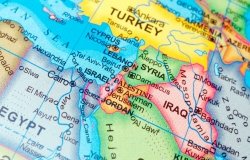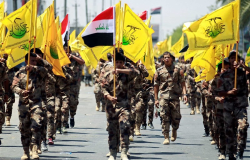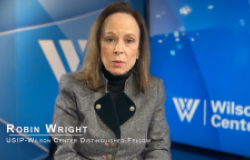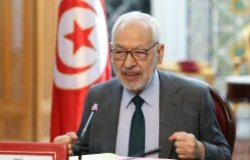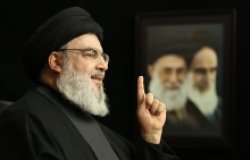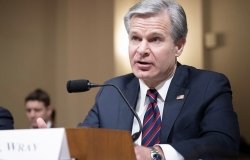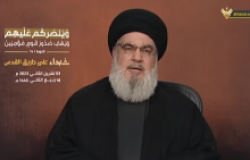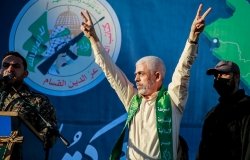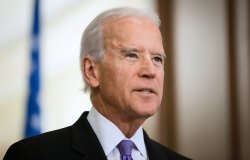Pew: Turks Split on Erdogan’s Leadership
The Turkish public is split over how Prime Minister Recep Tayyip Erdogan is leading the country, according to a new Pew Research survey. His party, the Islamist Justice and Development Party (AKP) has been the driving force in Turkish politics for a decade.
The Turkish public is split over how Prime Minister Recep Tayyip Erdogan is leading the country, according to a new Pew Research survey. His party, the Islamist Justice and Development Party (AKP) has been the driving force in Turkish politics for a decade. And most observers expect Erdogan to win in the August 10 presidential poll, the first direct election for the office in Turkish history. The following are excerpted results from the poll, based on 1,0001 face-to-face interviews conducted between April 11 and May 16, 2014.
Turks are almost evenly split between those who are happy with Erdogan’s leadership and the state of the nation, and those who believe the former Istanbul mayor is leading the country down the wrong path. Overall, 44% are satisfied with the country’s direction, while 51% are dissatisfied. Half say the economy is doing well, while 46% think it is in bad shape. Forty-eight percent say Erdogan is having a good influence on the country; the same percentage believes he is having a negative impact.
Many Turks sympathize with the street demonstrations that rocked the country and attracted international attention just over a year ago. A 49% plurality say they supported the anti-government protests that took place throughout Turkey, most prominently in Istanbul’s Gezi Park. And a majority (55%) disapprove of how Erdogan dealt with the demonstrations.
Turkey’s military has long been a major player in the country’s politics – indeed, there have been several military coups since the founding of the Turkish Republic in 1923 – and a 55% majority believes the armed forces are having a good influence on the country. However, this level of support is down sharply from 72% in 2010 and an even higher 85% in 2007.
Another long running theme in Turkish politics is the deep divisions between secular and religious camps in the overwhelmingly Muslim nation, and contemporary Turkish society continues to reflect this divide. For example, highly observant Turkish Muslims are much more likely to support Erdogan, believe the country is on the right track, and oppose last year’s protests.
Views of the current state of the nation vary by gender, educational attainment, political affiliation and religious devotion among Turkey’s Muslims (estimated to be around 98% of the population). For example, men are equally divided on the country’s direction (48% are satisfied, 48% are dissatisfied), but only four-in-ten Turkish women feel positively about the way things are going while 53% have a negative outlook.
Some of the biggest divides are based on political party association and frequency of prayer among Muslims. For instance, 78% of Turks who say they feel closest to Erdogan’s moderately Islamist AKP are satisfied with the way things are going in Turkey, while only 11% among supporters of the opposition Republican People’s Party (CHP) feel the same.
Similarly, 54% of Turkish Muslims who pray five times per day or more are satisfied with current national conditions, while only 26% of those that hardly ever pray agree.
Islam Seen as Playing Big Role in Politics
An overwhelming majority (69%) say that Islam plays a large role in the political life of Turkey, with only 26% saying it plays a small role. Since 2005, six-in-ten or more have said Islam is a major force in Turkish politics. However, in 2002, prior to Erdogan’s election as prime minister, the public was split: 45% said Islam played a large role, while 43% said a small role.
Most See Islam Playing Large Political Role in TurkeyOn this particular question, both secular and religious Muslims agree that Islam plays a large role in Turkish political life: Three-quarters of Muslims in Turkey who rarely pray say this is the case, while a nearly equivalent share (73%) of observant Muslims agree. And supporters of both AKP (69%) and CHP (67%) say Islam is a political force in Turkey.
However, belief that Islam plays a big role in politics is more common among males, the young, and among Turks with a post-secondary education.
Among the majority that says Islam plays a large role, attitudes are split as to whether this is good or bad for Turkey. Nearly half among those Turks who say Islam plays a large role in politics think this is a good thing (47%), while 40% say it is a bad thing. Among the minority that says Islam plays a small role in politics, most say it is a negative for Turkey.
Click here for more information.
Related Program

The Islamists
Learn more about Hamas and how it relates to similarly aligned organizations throughout the region. Read more

